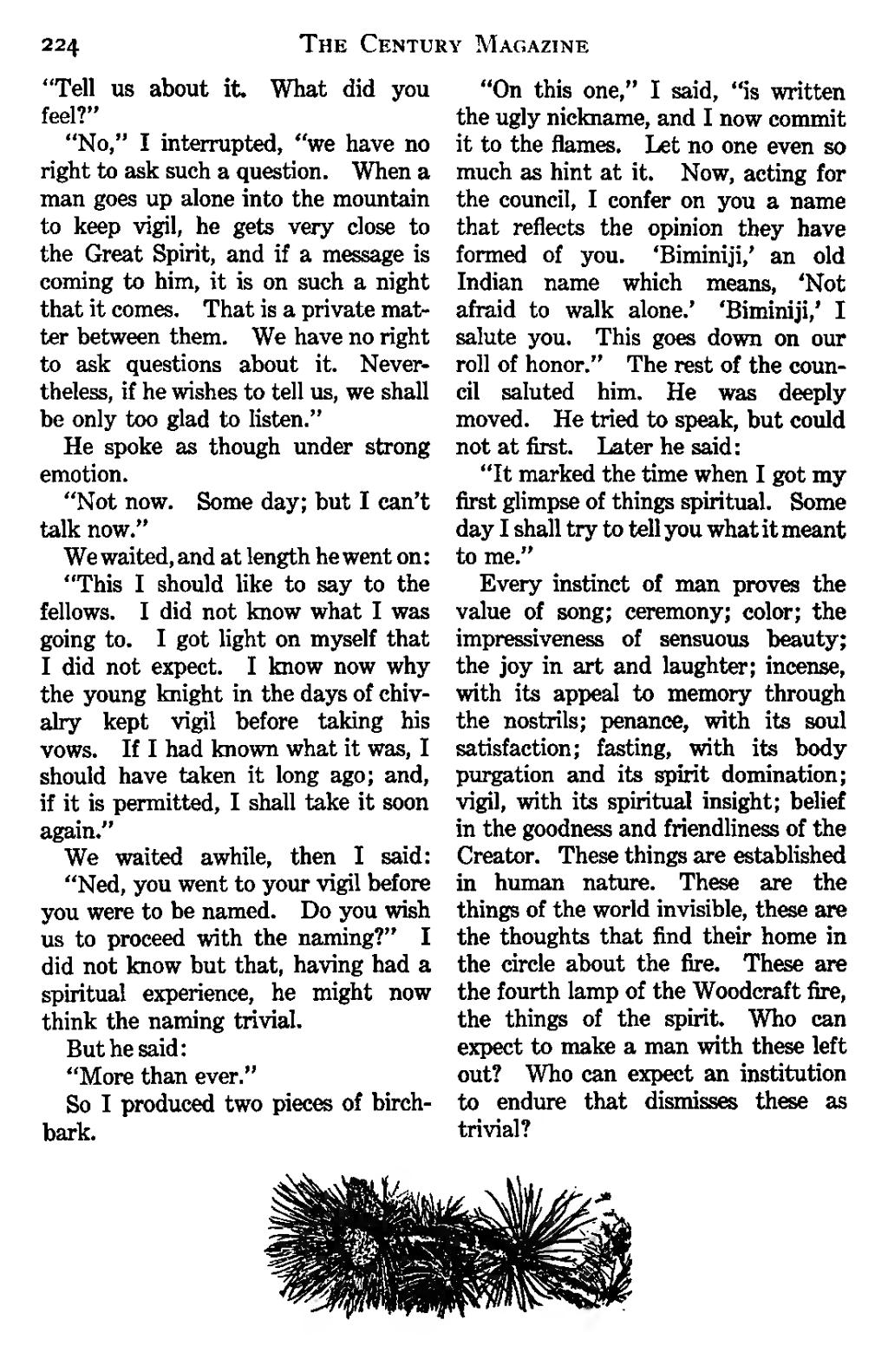Pokračování textu ze strany 11
“Tell us about it. What did you feel?”
“No”, I interrupted, “we have no right to ask such a question. When a man goes up alone into the mountain to keep vigil, he gets very close to the Great Spirit, and if a message is coming to him, it is on such a night that it comes. That is a private matter between them. We have no right to ask questions about it. Nevertheless, if he wishes to tell us, we shall be only too glad to listen.”
He spoke as though under strong emotion.
“Not now. Some day; but I can’t talk now.”
We waited, and at length he went on:
“This I should like to say to the fellows. I did not know what I was going to. I got light on myself that I did not expect. I know now why the young knight in the days of chivalry kept vigil before taking his vows. If I had known what it was, I should have taken it long ago; and, if it is permitted, I shall take it soon again.”
We waited awhile, then I said:
“Ned, you went to your vigil before you were to be named. Do you wish us to proceed with the naming?” I did not know but that, having had a spiritual experience, he might now think the naming trivial.
But he said:
“More than ever.”
So I produced two pieces of birchbark.
“On this one”, I said, “is written the ugly nickname, and I now commit it to the flames. Let no one even so much as hint at it. Now, acting for the council, I confer on you a name that reflects the opinion they have formed of you. ‘Biminiji’, an old Indian name which means, ‘Not afraid to walk alone’. ‘Biminiji’, I salute you. This goes down on our roll of honor.” The rest of the council saluted him. He was deeply moved. He tried to speak, but could not at first. Later he said: “It marked the time when I got my first glimpse of things spiritual. Some day I shall try to tell you what it meant to me.”
Every instinct of man proves the value of song; ceremony; color; the impressiveness of sensuous beauty; the joy in art and laughter; incense, with its appeal to memory through the nostrils; penance, with its soul satisfaction; fasting, with its body purgation and its spirit domination; vigil, with its spiritual insight; belief in the goodness and friendliness of the Creator. These things are established in human nature. These are the things of the world invisible, these are the thoughts that find their home in the circle about the fire. These are the fourth lamp of the Woodcraft fire, the things of the spirit. Who can expect to make a man with these left out? Who can expect an institution to endure that dismisses these as trivial?
